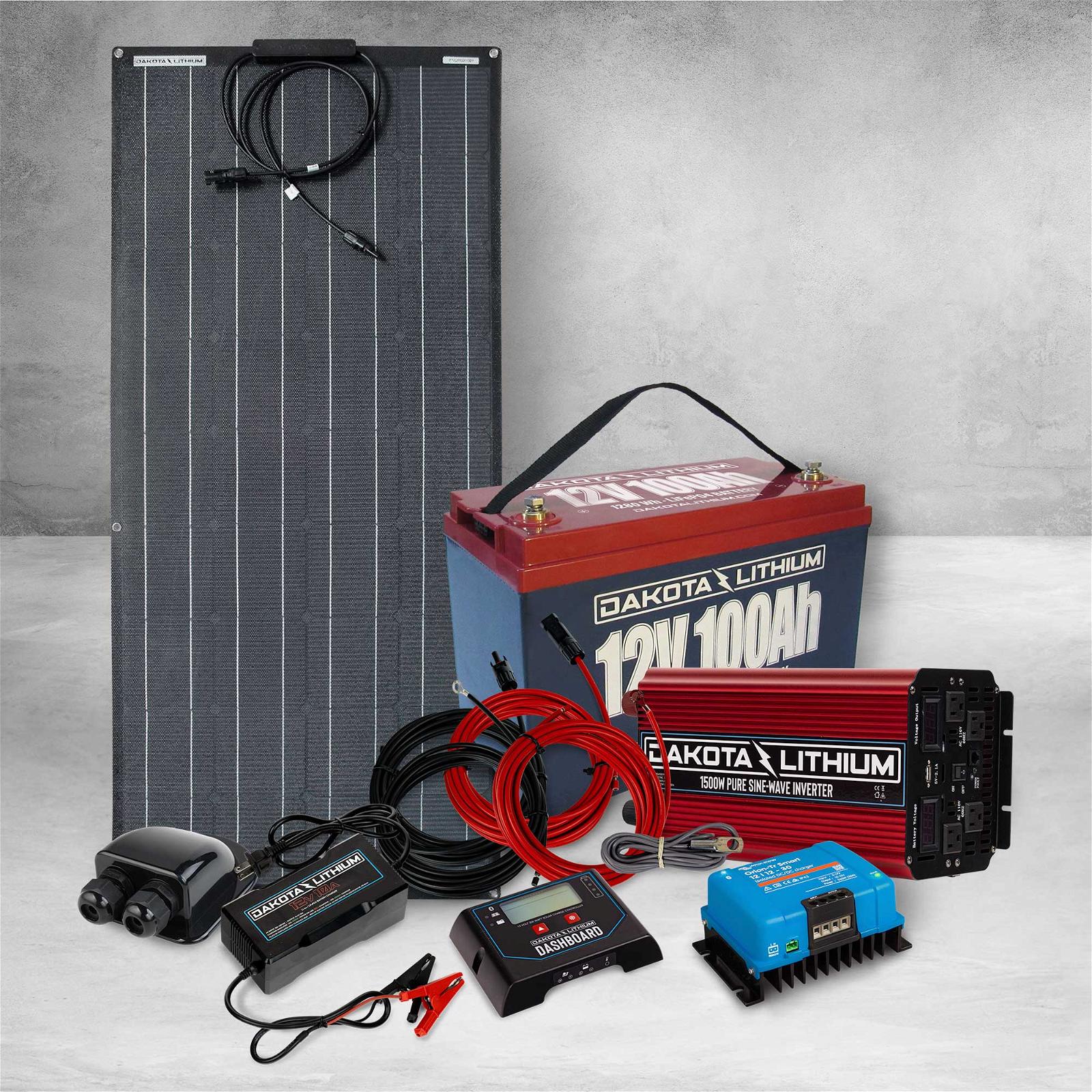

Solar charge controllers are an essential part of any off-the-grid system. For large solar panels they increase the efficiency of the electrical system by transferring the energy from the solar panel to the battery more effectively. For small solar powered systems (<50 watts) they are not necessarily needed. We’re here to help you understand when you need a solar charge controller and what size and type is needed for your system. As your read you will learn the basics of what a solar charge controller is, when you need one, how to select the best solar battery charger for your system, and the reasons why you may want to include one in your system.
A solar charge controller takes the energy from your solar panels and transforms it into the optimal voltage to charge your batteries. By doing so it increases the efficiency of your solar panels. Think of the efficiency gains in terms of voltage. A lithium battery likes to be charged at 14.4 Volts. A solar panel may have an output of 18 volts. The solar charge controller takes the 18 Volts and converts it to 14.4 Volts, providing the optimal charge for lithium batteries. This means less energy is lost in the transfer from solar panel to battery. They are also commonly called solar battery chargers, or charge controllers.
A solar charge controller is a battery charger that is designed to charge a battery using solar energy. It sits between your solar panels and your battery in an off-grid electrical system. A solar charge controller takes the energy from your solar panels and turns it into the voltage needed to charge your batteries. Solar charge controllers increase the efficiency of your solar panels and your batteries, allowing you to use and store more of the electricity that your solar panels have generated.
To determine how large of a solar charge controller you need find the max amps spec of your solar panels. You need a controller that is rated to a higher amperage than the solar panel. For example, if you have a 300 watt solar panel with a max amp output of 15 amps you need a controller with a 15 amp input. The most common size controllers are 15A, 30 Amps, 50A, and 100A. Here’s a few of the most common solar panel sizes for boats and RVs and the size of solar charge controller needed.
This 12V 100Ah off grid power system bundle is a great example of the amount of panels, batteries, and associated components needed for a small camper, trailer, adventure van, or overland truck build.

The Dashboard in the middle is the solar charge controller and battery monitor. It is wired to the solar panel and the battery, telling you how much energy is being generated by the panel and how much energy is inside the battery. The red inverter then plugs into the battery allowing you to run household appliances from the battery like a coffee maker, tv, fridge, etc.
Having one or two controllers does not changes the efficiency of your system. Just make sure the total Amp rating of your controller is less than the total amps generated by your panels. For solar panels generating <15 Amps you only need one. For systems generating more than 15 Amps there may be a strategic value to using multiple controllers. The reason is redundancy. If one fails you still have 50% of the system running.
Here’s a simple guide to matching what batteries, panels, and controller your need to make an efficient off grid system.
Yes! Controllers are a type of battery charger. As a result they read the live voltage of the battery constantly. This means some controllers are effective battery monitors. For example, the Dakota Lithium Dashboard (15A) Solar Integration Kit provides real time monitoring of your battery, with data displayed on the DL Dashboard app (apple & android). This means you can see how much electricity your solar panels have generated and how much energy is inside your battery.
The optimal charging voltage for Lithium batteries is 14.4 Volts. Read the specifications in the user manual or online. A lithium battery compatible charger will have an output voltage of 14.2 to 14.4 volts. Some chargers have multiple settings, an AGM or lead acid setting, which is a lower voltage, and a higher voltage lithium setting. Select the lithium setting if you are charging a lithium battery. A lead acid charger will not fully charge a lithium battery, or may not charge it at all depending on the model. The Dakota Lithium Dashboard is a lithium compatible controller that also includes a wiring kit and a battery monitor.